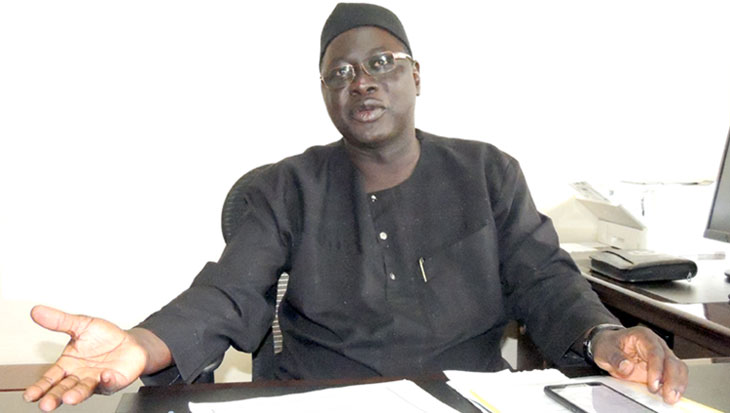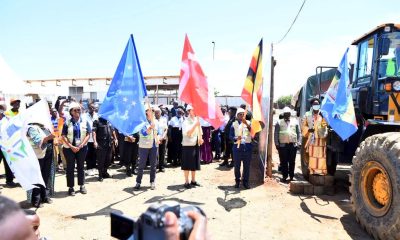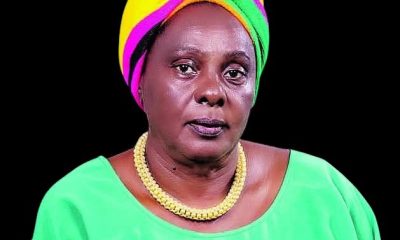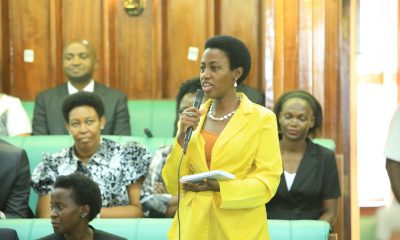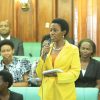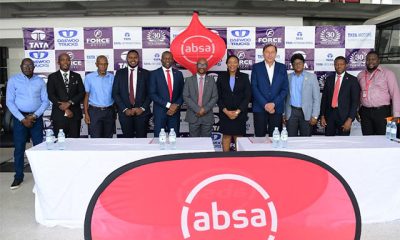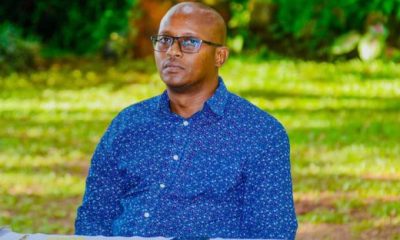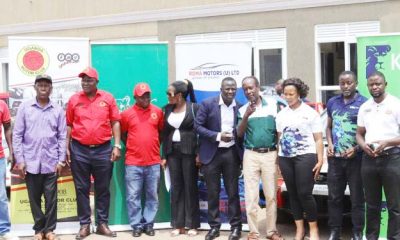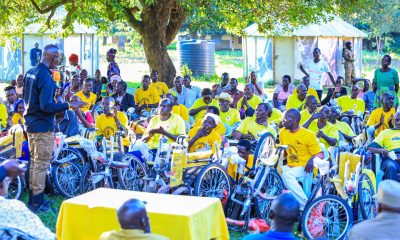News
Local Gov’t Accounts Committee Beats the Odds of Heavy Work Load
When I met with the out-going Chairman of the Parliamentary Committee on Local Government Accounts Hon. Reagan Okumu at his office on Parliament building, he looked visibly tired after a long journey from the field. Hon. Okumu and some members of his committee had just returned from Fort Portal and Hoima to conduct audits for the district administrations that fall under the two audit regions.
While speaking to The Sunrise, Hon. Okumu shrugged off the effect of fatigue as he was eager to share with us how he and his colleagues have managed to beat the odds to complete their work on schedule.
It is a commendable achievement indeed, considering that the committee’s mandate goes beyond scrutinising audit queries raised by the Office of the Auditor General regarding all the 121 districts, but also covers all other local government institutions such as municipalities, town councils, sub counties and all the tertiary institutions in Uganda.
In order to get a firm grip on the many institutions under their docket, while also limiting costs of travel, Okumu told The Sunrise that they divided the country country into 10 audit regions. Under those regions, the committee meets with accounting officers in a specific audit region (that usually brings together nearby districts) to get answers to some of the queries raised.
While on the just-concluded tour of Hoima audit region for example, the committee was able to assess the implementation of two infrastructural projects in Hoima and Fort Portal Municipalities.
The two municipalities are some of the 14 countrywide that benefited from the Uganda Support to Municipal Infrastructure Development (USMID) project, a US$150m five-year project that is being implemented by the municipalities themselves with loan money from the World Bank.
During their visit, Okumu observed that the two municipalities have encountered delays in building urban roads because the contractor M/S Plinth Technical Works who was awarded the tender to build the urban roads absconded their duty and run away with the money.
According to Okumu, the district council advanced M/S Plinth Technical Works with UGX5.5bn to make roads, apparently unaware of the company’s level of competence. In fact the same contractor was at fault on similar USMID projects in Mbale, Tororo and Soroti Municipalities. While in Hoima, Hon. Okumu directed the district administration to pursue the contractor with the view to recovering the money.
Besides fraud, Okumu raised concerns in Hoima regarding the failure by the second company that was contracted to build the roads and install lights. He pointed out that their visit revealed that the contractor had not installed street lights, nor had it put in place proper drainage.
Under this projects, all the 14 municipalities were supposed to have proper drainage systems, bicycle lanes, walk paths as well as beautify the towns through planting flowers, aspects that are still missing in many of the intended municipalities.
Lack of capacity at local government
Hon. Okumu observes that the USMID program has exposed district’s lack of adequate technical capacity to manage large projects. For example, they do not have laboratories to test the quality of materials used on roads, such as gravel, sand and murram.
He also They are supposed to lay out concrete that is supposed to take over 10 years in duration , districts are supposed to be lit with lighting,
And therefore the sample conclusion is that the project in these municipalities did not meet the objectives for which they were set because it took long time even to complete at an additional cost which were not meant for, so there was more wastages in a short time, more resources were wasted in order to complete but also this undermined the quality of the project.
Hon. Okumu used our interaction to express concern at the office of the Auditor General for failing to dig out the rot in districts by the way the AG focuses on themes.
“In financial audit, we were a little disappointed with the Auditor General’s findings because the Auditor General claimed that they are now focusing at thematic areas and not the entire district expenditure outlay. They can choose to focus on things like standards of education, standard of health, missing drugs. I think we have to engage them to ensure that audits must focus at where the largest amount of money (through the budget) goes.
In a brief Q and A session, Hon. Okumu, highlighted some of the achievements, challenges of handling local government financial records. Below are excerpts.
Qn What can you cite as achievements of your committee?
As a committee, we have managed to clear the backlog [of audit queries]. We are now working on the current audit report [by the auditor general] and we are going to finish this schedule on time. I think this is the biggest achievement we have done as a committee.
Qn. Have you managed to write any reports and what has been the impact of these reports?
By completing on schedule, it means that our reports have been tabled (presented) before parliament and have been passed. The rest is now the responsibility of government because the recommendations have been adopted and they are no longer committee reports, but rather reports of Parliament. Wo we have done our part as a committee. It is up to the executive now.
Qn. Is there a chance these reports will influence policy and national laws?
It will definitely, because the reports focus on a number of areas. They focus on institutional reforms, sanctions and we hope they will contribute to improving things.
Qn. What challenges have you faced as the Local Government Accounts Committee?
Our Challenge has been limited resource allocation to the committee. You see, we have been treated like any other committee of Parliament without appreciating the magnitude of our work. This is the biggest committee of parliament in terms of its mandate. It supervises more entities than any other committee. I.e All the districts, all the municipalities, all the town councils, all the sub counties in Uganda, all the tertiary institutions in Uganda. So it is huge.
Qn. How has you physical presence in the local governments helped your work?
An. It has helped to take parliament closer to the people. We want the local people on the periphery to see how their monies are being used. The local people also take advantage of our presence to volunteer vital information – as whistle blowers. This has enhanced our work.
Qn. How have you work contributed to improving local government accounts?
I think there has been a lot of positive impact because the accounting officers have been streamlined. The people know that accounting officers are simply servants and must give an account on the resources they get from government. So the people have become very vigilant and they are able to point out areas where there are problems.
Comments



